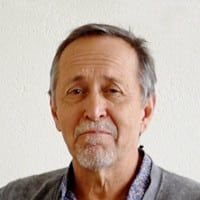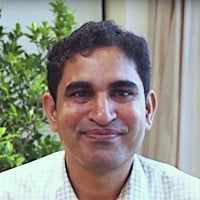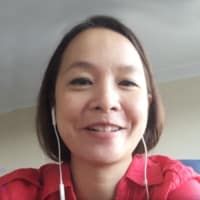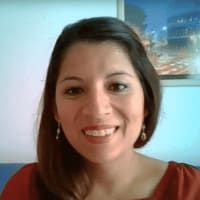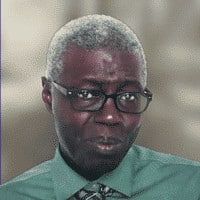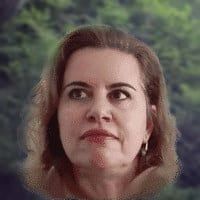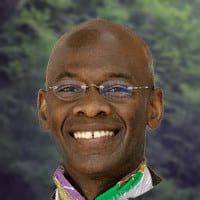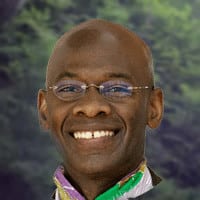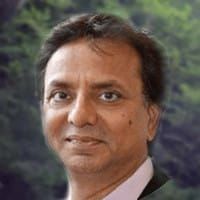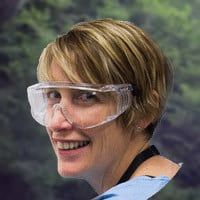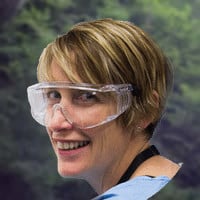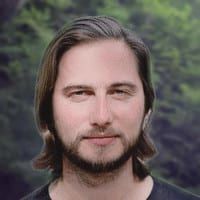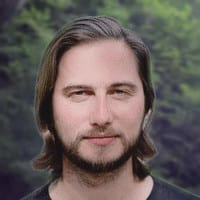Jonas Pontusson

Jonas Pontusson is Professor of Comparative Politics at the University of Geneva and a Visiting Scholar at the Hertie School of Governance, Berlin, for the academic year 2016-17. He received his PhD from the University of California at Berkeley and taught at Cornell University and Princeton University before moving to Geneva in 2010. He has written extensively on the politics of inequality in OECD countries. He is currently working on the distributive implications of macroeconomic growth models and, in parallel, preparing a research project on the consequences of inequality for government responsiveness to low- and middle-income citizens.
Jonas Pontusson presented a paper entitled “Inequality shocks and the politics of compensatory redistribution in the OECD world, 1990-2013” in a seminar organized by LIEPP on October 19th 2016. He also took part in LSE-Oxford-Sciences Po ‘Young Doctors’ Political Economy Workshop held on April 20th-21st 2017.
How does inequality look like through the political lens? What are the true details behind Government bias toward certain sectors of the population, and what is to be done about it?
By conducting a survey in countries like Sweden, Switzerland and the UK, Jonas Pontusson, Professor of Comparative Politics at the University of Geneva, explains the intricacies of political inequality in developed countries, the importance of representation through political parties, and the role of these same parties in modern day politics and society.
We spoke with Prof. Jonas Pontusson in Geneva during the conference: Overcoming Inequalities in a Fractured World: Between Elite Power and Social Mobilisation, organised by The United Nations Research Institute for Social Development (UNRISD).
The title of his presentation was:
On the Relationship Between Economic and Political Inequality: What Do We Know and Where Do We Go from Here?
Find out more about UNRISD here: http://www.unrisd.org

Jonas Pontusson: Hello, I am Jonas Pontusson. I am a professor at the University of Geneva and I work in Political Science.
Nerina: Thank you for joining me. You are at the conference about Overcoming Inequalities, what is the topic of your presentation?
Pontusson: I’m going to talk about advanced countries or rich countries, mostly North America and Europe, and I’m going to present research that I’m doing now or just started doing, which is about political dimensions of inequality and why governments are more responsive to some citizens than others. So I think in addition to economic equality, about which we know a lot, there is an important political dimension. Economic inequality, which is present in most countries, has important political implications; not only in terms of who participates, but who is prioritized or given more voice by political parties and by governments.
Nerina: What is political inequality?
Pontusson: So, I think political inequality, in an academic sense or in my area of research, means that if we look at what citizens want in terms of policy changes or political changes, we can measure, we can ask citizens what they want, and then we can look at what governments do, and we can ask ourselves the question: The support for policy change in some particular area among low income or working class voters, does it matter if 20% of them are in favor are in favor of these policy changes or if 80% of them are in favor of policy changes? So, can their preferences predict something about what governments do? And we can do the same for high income citizens.
The studies that we have, so far at least, tell us that whether high income citizens were a 20% support in policy change or a 80% support in policy change, has a big effect on whether we will see policy change in the next four, five, ten years. Whereas by contrast, if low income citizens support policy change, it doesn’t help us predict what happens, so we have some evisennce that political parties and governments are listening a lot more to affluent, well educated citizens that they are to low educated citizens, and then of course, we don’t exactly know why that is or how that works itself out.
That’s what I’m trying to study, and I’m trying to do is in a cross-national sense, trying to looks at different countries and ask whether this bias in the political process is bigger in some countries than in others, and maybe most importantly, I’m trying to see if this has changes, if it is the case that the voice of different kinds of citizens was more equal in, let’s say, the 1960s and 1970s than it is today.
Nerina: Which countries are you going to analyze and why?
Pontusson: A lot of people have already worked in the United States for this, and I’m not living in the United States, so I’m trying to talk to people in the United States, and there we know there’s a lot of unequal representation or unequal voice. We also know that in U.S., poor or low income citizens are much less likely to vote. So I’m way more interest in European countries, which is where I’m from, where the distribution of economic resources is more equal, and where it has increased a lot, and where differences in voter turnout or participation in elections are not so big. And yet in Sweden too we find that more affluent citizens, well educated, citizens, governments or politicians are more interested in what these people think and what they want. So Sweden is certainly one case I’m very interested in.
Switzerland is another case, with a very different political system. I live here, I work here, and the people who work with m on this research are mostly Swiss, so Switzerland is certainly going to be part of the mix. I’m interested in the U.K. and probably France and Germany, so those are the main countries. But we’re also doing a survey that will look at about fourteen, almost all West European countries, where we will ask people about what their policy preferences are, how important inequality is, are they aware of inequality as a rising topic. We are also going to ask them, and I think we will probably be the first survey to do so, about how they feel being represented and do they perceive these gaps of representation, and I think we know that at least the people who vote for populist parties probably do think that they are not very well represented in the political process.
Nerina: What aspects are you most interested in?
Pontusson: One of the big things that have changed, especially for left parties – social-democratic or labor parties -, is that people who are in there, who are candidates for public office, and especially at a national level – less obviously at the local level -, are now all university educated and they mostly come from white collar professions, and that didn’t use to be the case-
One for the things we are trying to do is to look at who are candidates for office and how that has changed over time and in different countries, and is it the case that candidates for public office who come from working class backgrounds or have been trade union members, which, at least in Sweden, used to be a very common path to public office, that you worked in trade union and then you became a politician at some point in your life. Whether those people are, to the extent that they’re still around, are they more responsive do they behave different in parliament and ask different questions or have different policy priorities, so we will do surveys of parliamentarians and some of those kinds of surveys already exist.
I think this has happened to many parties, but its change is more pronounced to traditional social democratic parties, and not only as the people who are politicians for them changed, but these parties, in their electoral campaigns, rely much more on media rather than on party activists or party members, and I think everybody would agree that a big gap has opened up between the working class constituents of these parties and their leadership and their kind of way of doing politics.
It seems fairly clear from the evidence we have that many working class voters have abandoned these parties. So my project is partly about what is happening to political systems and to democracies in general, but it is also very much about the crisis of mainstream left parties, and why they are having such difficulties maintain support of people who used to support them a lot and you would had some interest in the kinds of policies that these parties claim that they represent.
Nerina: You mentioned the media. What role do they play?
Pontusson: There is some research that says that social media and reliance on this more democratic form of media makes people only talk to people like themselves and at least in the U.S the evidence seems to suggest that this contributes to polarization in the sense that republicans only access media that has a republican intent or they only communicate with republicans, and democrats are the same.
I’m interested in segregation, and I think that media would be one aspect of segregation, as in obviously that people these days live in places that are more homogenously with-collar, upper-middle class or working class. In that sense I think that obviously left parties and progressive parties that want to do something about inequality cannot appeal to low income citizens; they also have to appeal to middle income and middle-class citizens, and I think that for those kinds of reasons – partly because perhaps it has to do with the media, but also more importantly having to do with where people live and where their children go to school -, building common interest, or framing redistributed policies as a common interest in many people, is probably harder today than it was before.
There is no doubt that elite men of a certain kind of media has, at least, until recently, meant that certain kinds of social issues and things having to do with inequality have not gotten the coverage that it should have gotten. To go back to what I was saying about left parties, I think that media makes these parties less relying on social networks and local activists to reach out, and therefore they are in some sense the leaders or the elites that run for office and are part of these parties; they are freer today to do so.
There are two things that have happened, and partly related to media. One is that middle-class and working class citizens are perhaps less interacting with each other, have moved the part on certain kinds of issues, especially when it comes to immigration and things like that.
The other thing has to do with the relationship between voters and politicians or candidates. There used to be party members that were the kind of connection between voters and politicians, and now parties have lost a lot of members – the British Labour Party obviously being an exception, and that I think is an important thing to note -, but in many countries there is more separation between politicians and citizens. Parties have become less important, and media consultancy has become much more important to the way these parties do politics.
Nerina: On one hand we have a democratization of them but on the other hand, they are still dominated by the elite, right? Why is this happening, and what does it mean for democracy?
Pontusson: I don’t have a single theory of this. I think that one of the things that happened was, obviously, the technological change, which was perhaps inevitable in respect to media. Another important thing that I haven’t mentioned yet is the decline of trade unions, and especially the decline of low income private sector trade unions.
Trade unions today, in some countries, have held up fairly well, especially in the public sector. Trade unions are more white collar today than they used to be, so there has been a decline in Unions, but this decline has not been the same in all sectors or all categories of workers.
You could attribute some of that decline to technological and structural changes that are beyond anybody’s control, most obviously the kind of manufacturing and the fact that private sector low wage work is increasingly in the service sector and smaller shops and places. That has a big effect, but I guess my argument would be that much of what has happened to trade unions has been a result of political decisions that were taken mostly by parties of the center right, but it’s striking to me that left parties, when they come back to power, have very rarely reversed those decisions or changed things in ways that incentive people or make it easier to organize trade unions.
I think that’s true of the Labour Party under Blair in the 1990’s; there were a lot of reforms that Thatcher had introduced that could had been changed and they were not, and it is also true of the Swedish social democrats, when they returned to power in 2014; they didn’t change the reforms that had been introduced specifically to reduce trade union power.
One reason why some of this stuff happened was because of austerity and slow economic growth and the perception – and this is a very important thing -, that a lot of the demands of low income citizens cost money. Most demands of affluent citizens have to do with regulation, the freedom of taking your child out of school and sending him to a private one, a lot of the demands of affluent citizens have to do with choice and regulations, and they can be accommodated in an austere economic environment in the way that the demands of low income citizens are more costly in some sense, and more difficult to square with in balance budget and the like.
That is something about the economic situation. I also think that up until recently, a lot of left parties and others thought that low income workers citizens had nowhere else to go. It wasn’t particularly interesting to appeal to them because they would vote for them anyway. The option were not good, a and many of them didn’t want to vote anyway, so if they stopped voting, it wouldn’t be a major problem and it was thought that these categories of citizens were a relatively small group of people who would probably, with their knowledge of economy and with these transformations, would probably continue to diminish, and therefore wouldn’t be very important for elections.
If we wanted to win the next election, it was much more important to win the support of these what political science calls ‘swing voters’, who could just as well vote for the liberals or some other parties to the center right.
So it was thought that one could ignore these people, and of course one of the big lessons of the rise of populism is that there are more people who feel unrepresented, who fit into these categories. There are more people and they now think – foolishly, perhaps -, that they have options, and I think a big question becomes, can left parties reorient themselves? And if they do, can they win those voters back again?
You know, it is often said about trust in a marriage that if you do things that lead your partner not to trust you, it is very difficult to regain that trust. So, can you put Humpty Dumpty back together again? Because I think, as you know, that they have done extremely badly in the last few elections and I think that, not so much for may academic research but for the more political and the more point of view, the big question for people like myself is, should we abandon these parties? Should we try to build other parties? Or is there still some possibility of revitalizing them? And that probably varies from country to country.
Nerina: Do we need the left parties or in general, what in your opinion, could you do? or should we do?
Pontusson: This is the nature of democracy. Elections do matter and it is a good thing that the democrats won control of the House of Representatives the day before yesterday. It has meaningful consequences; we cannot step back from that, I think. But obviously, and I think certainly this is the American case – I follow the elections fairly closely -, tge most important thing is probably the changes that re taking place at a more local level, but it is electoral politics.
Some of my friends say ‘forget about the electoral politics, this should all be about organizing social movement and communities, and trying to correct things at a local level’, and then there are other people who basically say ‘Well, we just have to live with the parties that we are stuck with, and elections do matter, so therefor we have to vote for these parties and we have to urge other people to do so as well’.
I guess progressive people need to find an intermediate position, and that position probably revolves around elections at the local or regional level in the United States, so that it’s not just national elections or local activism, but that there is politics at a series of levels between those two extremes. Most importantly, political parties are an important institution in electoral democracies, so we cannot abandon a party electoral approach.
Nerina: If you could change one thing tomorrow what would it be?
Pontusson: I would say one thing. This is not a thing we can do tomorrow. As you now, there is debate around basic income; I’m not sure what the basic income is the magic solution. I think that the political conversation, especially on the left, needs to change. I think we should talk. Opportunities matter, but we need to build the safety net.
We can afford this, whether it’s basic income or other schemes. I think we have drifted too much towards creating education and opportunities. Education is important, but it’s a long term thing and we need relatively quickly social policy reforms that address income gaps and address the income problems which low-wage workers and non-workers face today, and I think that’s probably, if I were running as a politician, I would talk about.
And then more long-term, encouraging unionization and restricting or increasing regulations on financial corporations. We need to do something very soon, in my opinion. We don’t have the luxury of thinking about reforms that will change the way democracies work 15 or 20 years from now; I think we do need to do things and those things in the first instance have to do with what I would call ‘compensatory redistribution’. That should be the focus.
Nerina: Why do we need to do this now? Why the urgency?
Pontusson: Because I think there will be no left parties left, and because I think a continuous increase in populist support will have very bad consequences for all of us.
Nerina: What is the most important thing you have learned and you would wish people know more about or think more about?
Pontusson: I think the most important thing that I have learned is that it is not just a level of inequality that matters, but the structural inequality is very important, and that if the poor become separated from the middle class, as has been happening, this undermines the basis for progressive politics. In some sense, I am less worried about the top income shares, the top 1%, but from a political point of view, I am much more worried about a growing gap between low-income citizens and workers, and the middle class. That gap is what the left has to worry about.
Nerina: What is your dream?
Pontusson: My dream is that we will ultimately – and I thought this would happen before I die but it won’t -, create a society that is more equal and more tolerant. Both of those things are important.
Nerina: What is life about?
Pontusson: Life is about being the best I can be in my work, “succeeding” or doing as well as I can, and doing better than some, so there is a kind of work competitiveness that motivates me. It’s also about trying to be socially and politically relevant, and finding ways in which one can speak outside of this academic community that I am part of.
And then finally, and most importantly, life is about my family and my wife and my children.
Nerina: Thank you so much for this conversation.
Pontusson: Thank you.
Nerina: Thank you everybody for listening and watching. Keep wondering and see you soon again. Bye and ciao.
Jonas Pontusson is Professor of Comparative Politics at the University of Geneva and a Visiting Scholar at the Hertie School of Governance, Berlin, for the academic year 2016-17. He received his PhD from the University of California at Berkeley and taught at Cornell University and Princeton University before moving to Geneva in 2010. He has written extensively on the politics of inequality in OECD countries. He is currently working on the distributive implications of macroeconomic growth models and, in parallel, preparing a research project on the consequences of inequality for government responsiveness to low- and middle-income citizens.
Jonas Pontusson presented a paper entitled “Inequality shocks and the politics of compensatory redistribution in the OECD world, 1990-2013” in a seminar organized by LIEPP on October 19th 2016. He also took part in LSE-Oxford-Sciences Po ‘Young Doctors’ Political Economy Workshop held on April 20th-21st 2017.
